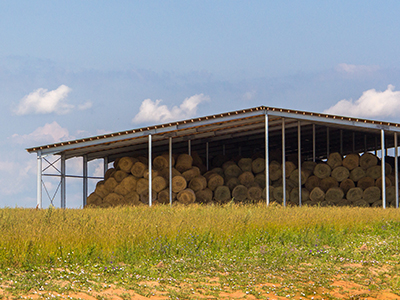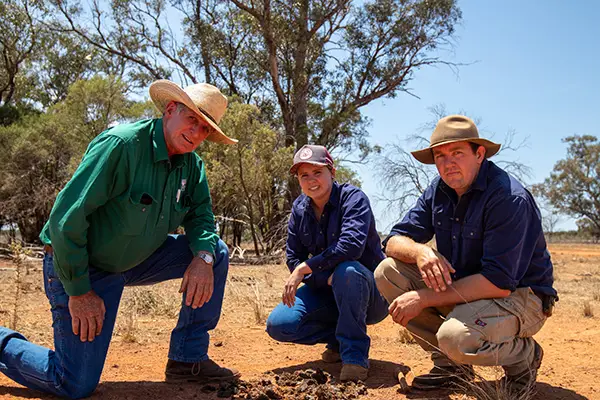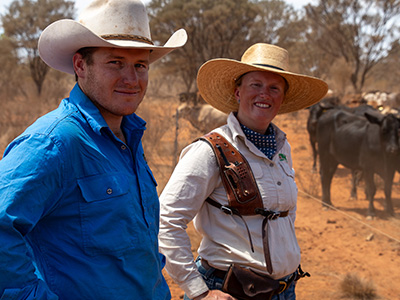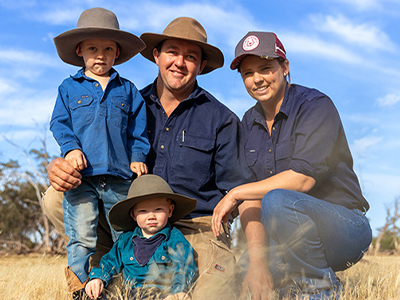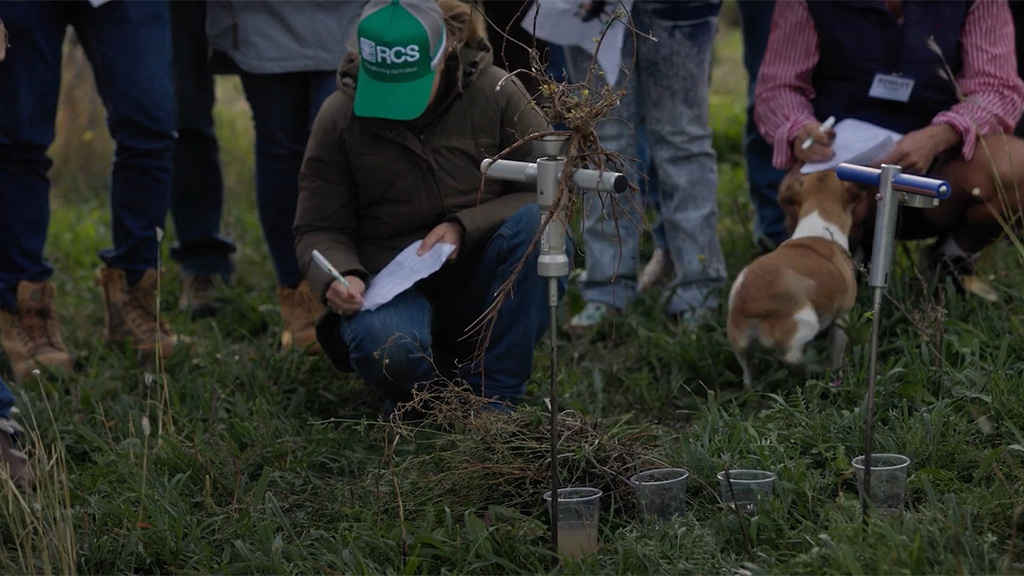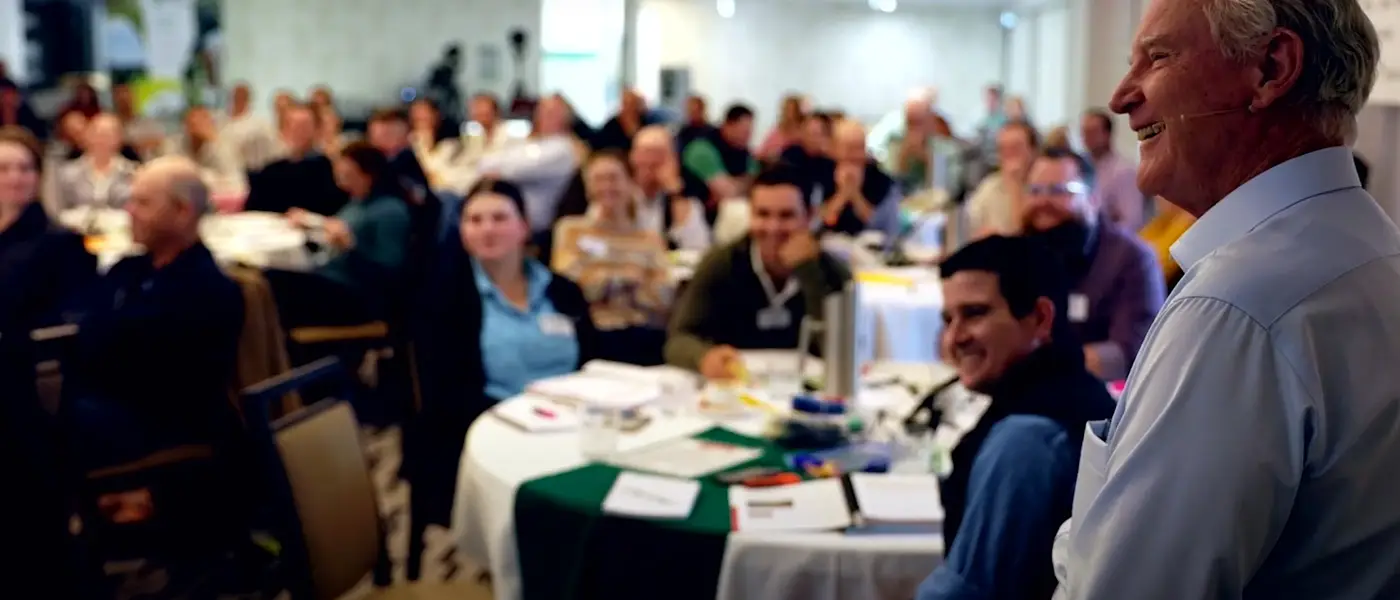What’s changed for Simon and Laura?
The Princes are keen to continue the work of Simon’s parents on ‘Geandale Station’.
“Dad worked hard over the last 30 years to develop the property, and did a really good job in establishing perennial grasses with rotational grazing,” Simon said.
“Through the RCS program, we have been able to better manage our groundcover through feed budgeting and the MaiaGrazing software.”
Laura also has valued the grazing training and resources available.
“Our experience with the MaiaGrazing software has been really positive,” she said.
“We had an idea of how we wanted to leave a paddock in, but to be able to put those thoughts into numbers and forecast ahead for the future is great.
“Even though we’re in drought now (late 2023), it’s very fulfilling to be able to look around at our animals and paddocks and see they are still in good condition.”
The Drought Resilient Soils and Landscapes Program has also introduced Simon and Laura to a network of farmers willing to share their experiences.”
“Although you think you’re doing it the best way you can, there’s always someone doing it better,” Simon said.
“In such a short period we’ve been able to meet like-minded people who want to improve their land and management.
Support in the paddock
The Princes’ RCS mentor, Raymond Stacey, sees a strong future ahead for Simon and Laura.
“The Drought Resilient Soils and Landscapes project is about supporting graziers to manage their country and businesses better,” Raymond said.
“I see an operation here where they’re working hard on their planning and putting their plans into action to leave their country, business and people in better shape.”
Outcomes for drought resilience
- Established 2 paddock monitoring sites
- Installed 45km fencing and 6 water points, dividing paddocks into smaller sizes
- Installed 250,000 litre water tank to pump water around the farm when needed
- Use of a crimper – knocked down saffron thistle, broke open old moribund perennials, created disturbance on sealed clay pans
- Introduced cattle into the operation
- Started using lick trailers to offer minerals
- Frequent feed budgeting
- Used Maia software to calculate cumulative yields and recording DDH from each paddock
- Gained confidence in themselves and their business performance
- Hosted a grazier peer group session and shared experiences
- Data-driven decision-making to futureproof the business
- Realigned breeding to match the environment and ecological cycle
- Training: 2.5 day RCS Grazing Clinic, MaiaGrazing platform
- RCS coaching and mentoring through a combination of one-on-one and grazier peer group sessions.
Find out more about the RCS Drought Resilient Soils and Landscapes Program.
